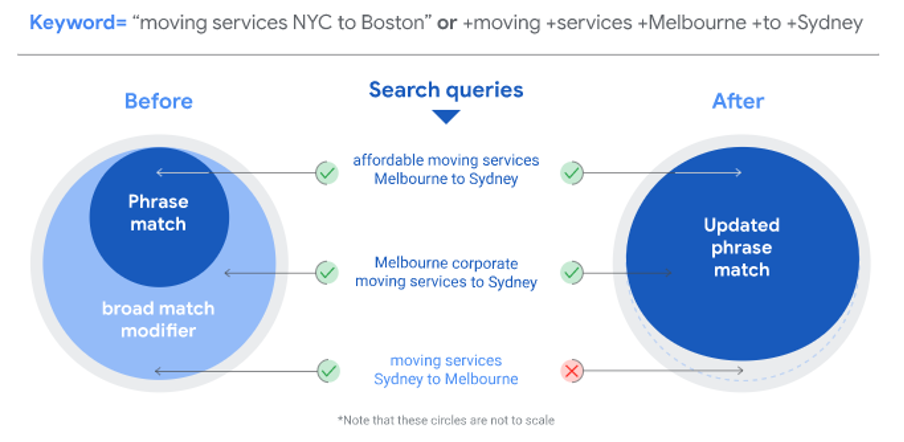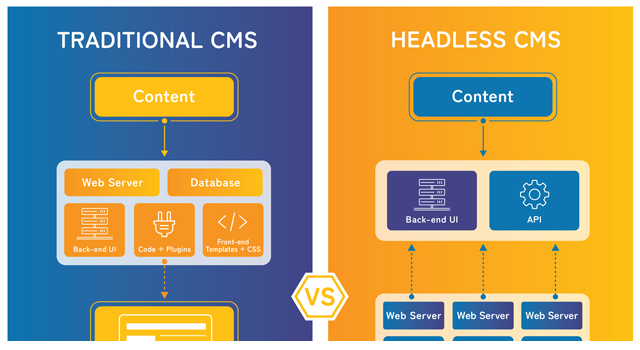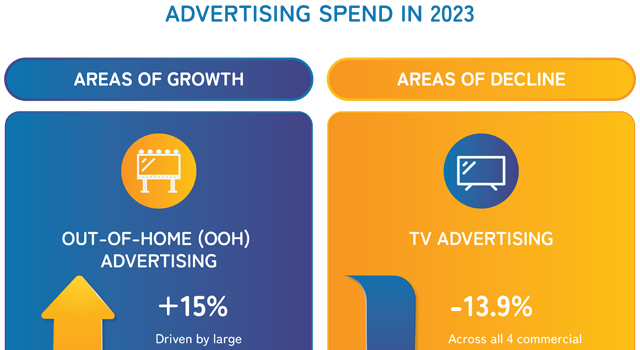With over 3.5 billion searches happening on Google every day, how do advertisers decide what searches to bid on and how does Google ensure your ad matches the search query? The answer: keywords. Well… and also your landing page, machine learning and a range of other factors. But for the purpose of this article, we’re going to focus on keywords as these have historically been the number one way in which ads are matched to searches and they are still very relevant in 2021. However, they are changing. So Media Merchants have highlighted here everything you need to know about Google keyword match types in 2021.
Historically, there have been four main ways that advertisers can use different match types to make sure their ads are served to the most relevant search query. These are:
- Exact Match
- Phrase Match
- Broad Match
- Broad Modifier Match
In February 2021, Google announced that broad match modifier would become obsolete by July 2021, signalling a major change to how keywords are used in search.
We’ll cover each match type below and also how they will work when broad match modifier is removed from Google Search.
Exact Match
Exact Match keywords are the most specific you can be when it comes to matching an ad to a search query. They show on searches that have the same meaning as your keyword. When Google search began, the meaning of exact match was very literal and advertisers needed to include specific keywords for all misspellings and plurals. Over time, this match type has evolved to include what is known as close variants, or variations on the keyword that don’t change the intent of the search.
Key Learning:
Use Exact Match keywords when you want precision and less volume. To make an exact match keyword add [ ] to your keyword, i.e. [media agency] to match to the search query media agency.
Phrase Match
Phrase Match keywords allow you to specify words that must appear in your search, but will still allow your ad to show when other words are present. An example of this is the keyword “running shoes” matching with the search term blue running shoes. If these were exact match keywords, as blue is present in the search query, the ad wouldn’t show. However, with Phrase Match, we can still bid on this search, despite the search intent of the user being different. Google’s announcement in February does change this, but we’ll come to this further on.
Key Learning:
Use Phrase Match keywords when you want some control but greater volume. To make a Phrase Match keyword add “ “ to your keyword, i.e. “media agency” to match to the search query Brisbane media agency.
Broad Match
Broad Match is the broadest you can be with your keywords. Ads will show on searches related to your keyword, but those searches may not necessarily contain the same words as your keywords. For example, the keyword ‘dress shoes’ might match to the search term high heels. The issue with broad match historically is that often ads would appear against terms that are too broad and have a different search intent to the keyword you specified, so there can be a lot of wastage. With the advent of machine learning, this is changing but again, we’ll come to this later on.
Key Learning:
Use Broad Match keywords when you want volume and are okay to sacrifice on control. You may be a new advertiser and not exactly sure what keywords you should be bid bidding on. This will allow you to get real audience data specific to your business on how people searching certain terms will engage with your ads. To make a Broad Match keyword just enter your keyword as normal, i.e. ‘media agency’ to match to the search query advertising company.
Broad Match Modifier
Broad Match Modifier is a variation on Broad Match that provides much greater control for advertisers by allowing them to specify which words must appear in a search query but at the same time not specifying the order of those words. An example of this is the keyword +QLED +tv matching with the search term best QLED 65-inch tv. As there are words in between the keywords qled and tv, neither exact nor phrase match would traditionally match this search.
As this match type is phased out, phrase match will start to match on the same queries that broad match modifier once did. The example below provided by Google shows how this change will work in action.

What does this change mean for advertisers?
Machine learning has evolved considerably over the past decade and so too has Google’s understanding of the intent behind different searches. Coupled with the fact that 15% of searches each day have never been seen before by Google[1], the need to evolve keyword match types to be more flexible is evident if we want to continue to be able to match relevant ads to relevant searches.
It’s hard to say exactly how this change will affect SEM accounts come July when it is fully rolled out but there are three steps you can take now to be set up for success:
- Review your broad match modifier keywords to see what search queries they are matching to.
- If you need greater control, set up exact match versions of your high performing search queries.
- Audit your negative keyword list and add any missing terms. While keyword match types are changing, negative keyword match types aren’t, so you can still use exact, phrase and broad match modifier here.










